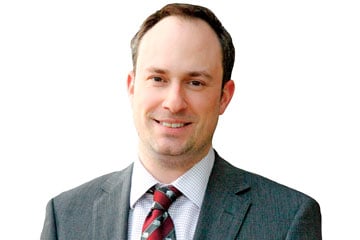
The murders of eight residents in nursing homes in Southwestern Ontario by nurse Elizabeth Wettlaufer has prompted the Ontario government to launch an inquiry into the safety and security of residents in the long-term care homes system.

The murders of eight residents in nursing homes in Southwestern Ontario by nurse Elizabeth Wettlaufer has prompted the Ontario government to launch an inquiry into the safety and security of residents in the long-term care homes system.
The commission, headed by Justice Eileen Gillese of the Ontario Court of Appeal, was struck Aug. 1 and is intended to look into not only the systemic aspects of what happened that allowed the Wettlaufer murders to happen but also what accountability measures are in place to ensure that the obligations under the Long-Term Care Homes Act are met. Lawyers say there are issues that clients need to be aware of when it comes to placing relatives in care situations.
“The abuse that was inflicted by Ms. Wettlaufer is just one instance of many different types of abuse that occurs in long-term care homes,” says Graham Webb, executive director of the Advocacy Centre for the Elderly, a legal clinic for low-income seniors.
Because lawyers mostly come into contact with the person being given the power of attorney, one suggestion is to find a mechanism that will give information or advice to that attorney regarding their obligations under ss. 32 and 66 of the Substitute Decisions Act, which describe the duties of the attorney or guardian of property or personal care.
“We think that the attorneys or guardians really need to be alive to the extent of their powers under the Substitute Decisions Act,” says Webb.
Webb says this is especially important for grantors who are either incapable and going into long-term care or considering long-term care as a housing option.
Webb says that there are detailed requirements in the act about things such as keeping records of decisions, which helps drive better outcomes.
Webb adds that attorneys or guardians have the right to receive information under the Personal Health Information Protection Act and Substitute Decisions Act, which can help to keep them involved with things such as care conferences to develop a care plan for the person being placed in the facility.
“The possibility of abuse of any kind, not just medication abuse or intentional abuse by a caregiver but other kinds of abuse, are something that they really need to be aware of,” says Webb.
He adds that this could also apply to trusteeships or guardianships as well as powers of attorney, in order for them to be aware of the possibility of abuse in congregate living situations.
James Anderson, a lawyer in private practice in Ottawa, says that clients who are requesting a power of attorney need to sit down with the person being given the powers, in order to understand that they become the advocates for the grantors when it comes to dealing with doctors and staff.
Much of that discussion should also involve what “quality of life” means to them.
“To you, does that mean having daily showers or are you OK with every other day?” says Anderson.
“Do you have food preferences or dietary issues? Of course, it goes to housing — do you want to stay at home with your family? With health decisions, if you are critically injured, do you want extraordinary measures to prolong your life?”
As the advocate, the attorney needs to bear the grantor’s wishes in mind rather than their own, especially when it comes to things such as new or invasive treatments.
Anderson also has a large number of LGBT clients, who can often find themselves in more vulnerable situations in long-term care scenarios where they can become more isolated or be forced to go back into the closet at a late age because staff or other residents can be hostile.
While some cities are trying to open LGBT seniors’ residences, there are limited spaces.
Anderson says this can mean conversations with clients about being clear about their wishes when it comes to avoiding some of these situations.
“When I add clauses that are more specific is if they express an interest in staying at home as long as possible, which is really only applicable to people that have enough money that can bring in in-home care or add a chair lift,” says Anderson. “In theory, you could add a clause that says that if there’s an LGBT home that they would prefer to go there, but that’s part of the discussion your client should have with their attorney.”
Anderson says this can mean coaching your clients to have these difficult conversations, which includes certain hypothetical situations to consider.
“I think it’s really important that the person who makes decisions — whether it’s the individual themselves living in the home or a family member under the Health Care Consent Act or an attorney or guardian — really needs to understand the rules about informed consent,” says Jan Goddard, partner with Goddard Gamage LLP in Toronto.
She says this is where a lot of problems currently take place, especially when it comes to medications being prescribed without anybody seeking informed consent.
“What I’ve observed is that the rules around informed consent seem to go out the door as you go in the door of these long-term care homes,” says Goddard.
“It’s really important from the beginning to make it very clear to everyone that you expect the law to be upheld.”